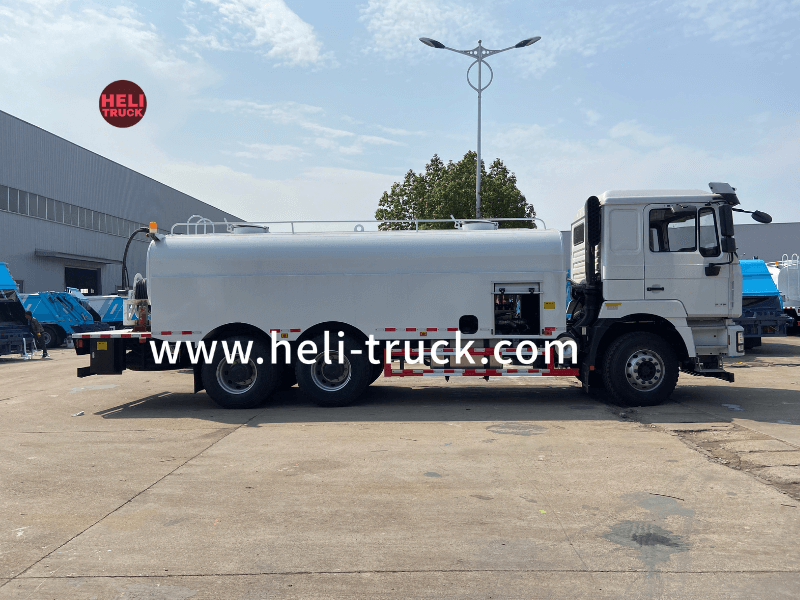Maximizing Efficiency and Performance A Comprehensive Guide to Garbage Compactor Truck Engines
Introduction Garbage compactor trucks play a crucial role in waste management systems, efficiently collecting and compacting solid waste to reduce its volume before disposal. At the heart of these specialized vehicles lies the garbage compactor truck engine, a powerful and robust component designed to handle the demanding tasks associated with waste collection and disposal. In this comprehensive guide, we will delve into the intricacies of garbage compactor truck engines, exploring their design, functionality, maintenance requirements, and the latest technological advancements aimed at enhancing their efficiency and performance. Chapter 1: Understanding Garbage Compactor Truck s Before delving into the specifics of garbage compactor truck engines, it is essential to understand the role and function of these specialized vehicles in waste management systems. Garbage compactor trucks are designed to collect, transport, and compact solid waste efficiently, thereby reducing the volume of waste and optimizing space utilization in landfills or recycling facilities. These trucks come in various sizes and configurations, ranging from small compactors used for residential waste collection to large industrial units for municipal or commercial applications. Chapter 2: The Evolution of Garbage Compactor Truck Engines The development of garbage compactor truck engines has evolved significantly over the years, driven by advancements in engine technology, emissions regulations, and the growing demand for more efficient and environmentally-friendly waste management solutions. Early garbage compactor truck engines were typically diesel-powered, offering the necessary torque and durability to handle the demanding nature of waste collection and compaction. However, with the increasing focus on reducing emissions and improving fuel efficiency, manufacturers have begun to explore alternative power sources such as natural gas, electric, and hybrid engines for garbage compactor trucks. Chapter 3: Design and Components of Garbage Compactor Truck Engines Garbage compactor truck engines are specially designed to meet the unique requirements of waste collection and compaction operations. These engines are typically equipped with robust components and features that enhance their durability, performance, and reliability in harsh operating conditions. Key components of a garbage compactor truck engine include the engine block, pistons, fuel injection system, cooling system, exhaust system, and filtration system. Each of these components plays a crucial role in ensuring the smooth and efficient operation of the engine during waste collection and compaction tasks. Chapter 4: Performance Factors and Considerations When evaluating the performance of a garbage compactor truck engine, several factors must be taken into account to ensure optimal efficiency and reliability. Key performance factors to consider include power output, torque, fuel efficiency, emissions compliance, and maintenance requirements. The power output of the engine dictates the truck's ability to handle heavy loads and steep inclines, while torque determines the engine's pulling and compaction capabilities. Fuel efficiency is crucial for reducing operating costs and environmental impact, while emissions compliance ensures that the engine meets stringent regulatory standards for air quality. Chapter 5: Maintenance and Service Proper maintenance and servicing are essential to ensure the longevity and performance of a garbage compactor truck engine. Regular maintenance tasks include oil changes, filter replacements, fluid checks, and inspection of critical components such as belts, hoses, and gaskets. Scheduled service intervals should be followed to prevent premature wear and damage to the engine, leading to costly repairs and downtime. Additionally, it is crucial to address any issues or abnormalities promptly to avoid potential breakdowns and safety hazards during waste collection operations. Chapter 6: Technological Advancements and Innovations The garbage compactor truck industry is witnessing a wave of technological advancements and innovations aimed at improving the efficiency, performance, and sustainability of waste management operations. Manufacturers are incorporating cutting-edge technologies such as telematics, GPS tracking, remote diagnostics, and predictive maintenance systems into garbage compactor trucks to enhance operational visibility, optimize routes, and streamline maintenance processes. Furthermore, advancements in engine design, materials, and fuel systems are leading to more efficient and environmentally-friendly garbage compactor truck engines that meet the evolving needs of the waste management industry. Chapter 7: Future Trends and Outlook As the demand for sustainable waste management solutions continues to grow, the future of garbage compactor truck engines looks promising with a strong focus on efficiency, performance, and environmental sustainability. Manufacturers are expected to invest in research and development to further enhance engine technologies, reduce emissions, and optimize fuel efficiency in garbage compactor trucks. Additionally, the integration of alternative power sources such as electric and hydrogen fuel cell engines is likely to gain traction, offering cleaner and quieter operation for urban waste collection fleets.  Conclusion Garbage compactor truck engines are the driving force behind efficient and reliable waste collection and compaction operations. By understanding the design, functionality, maintenance requirements, and technological advancements of these specialized engines, waste management professionals can maximize the performance and longevity of their garbage compactor trucks while reducing environmental impact. With a strong emphasis on efficiency, performance, and sustainability, the future of garbage compactor truck engines holds exciting possibilities for revolutionizing the way we manage and handle solid waste in a rapidly evolving world.
Conclusion Garbage compactor truck engines are the driving force behind efficient and reliable waste collection and compaction operations. By understanding the design, functionality, maintenance requirements, and technological advancements of these specialized engines, waste management professionals can maximize the performance and longevity of their garbage compactor trucks while reducing environmental impact. With a strong emphasis on efficiency, performance, and sustainability, the future of garbage compactor truck engines holds exciting possibilities for revolutionizing the way we manage and handle solid waste in a rapidly evolving world.